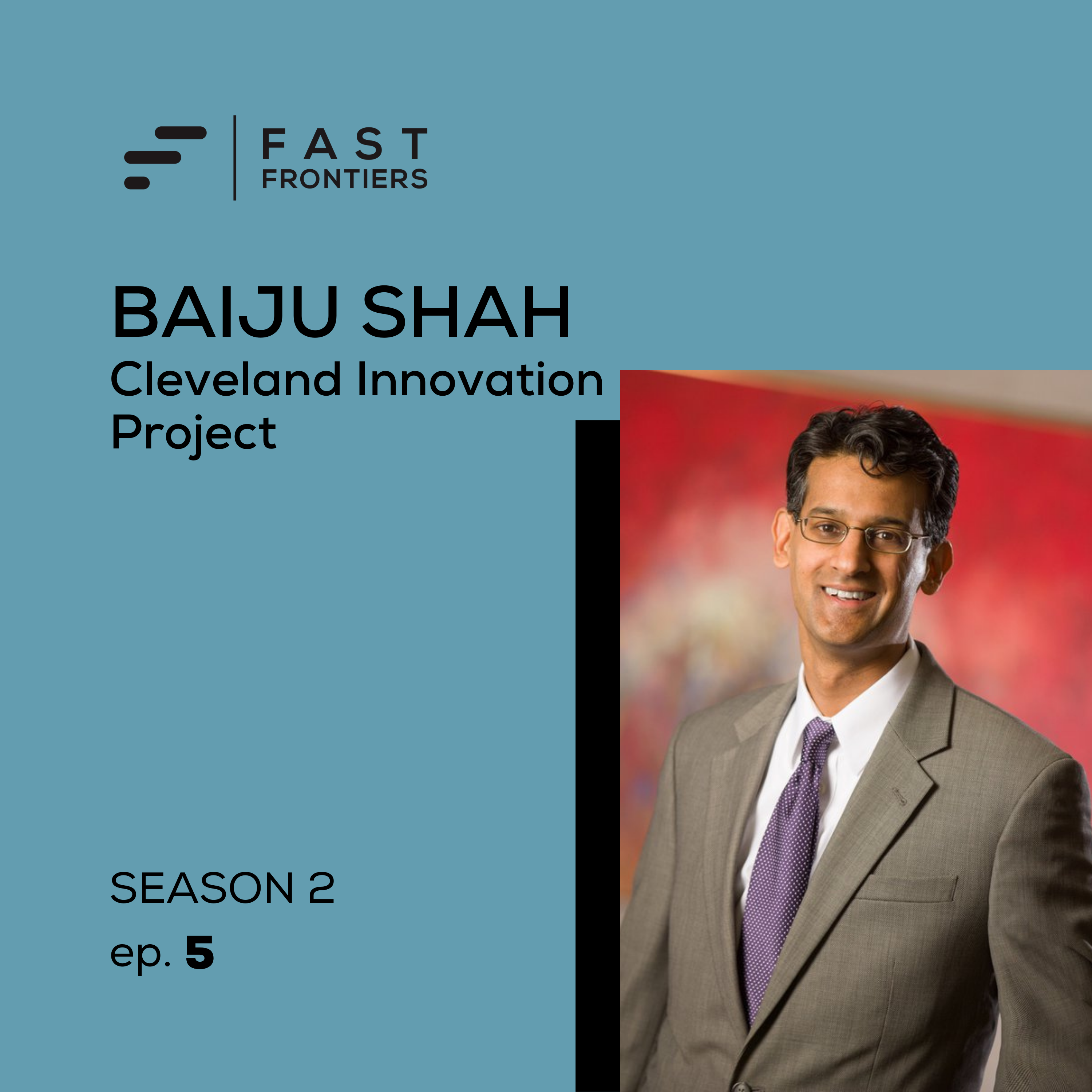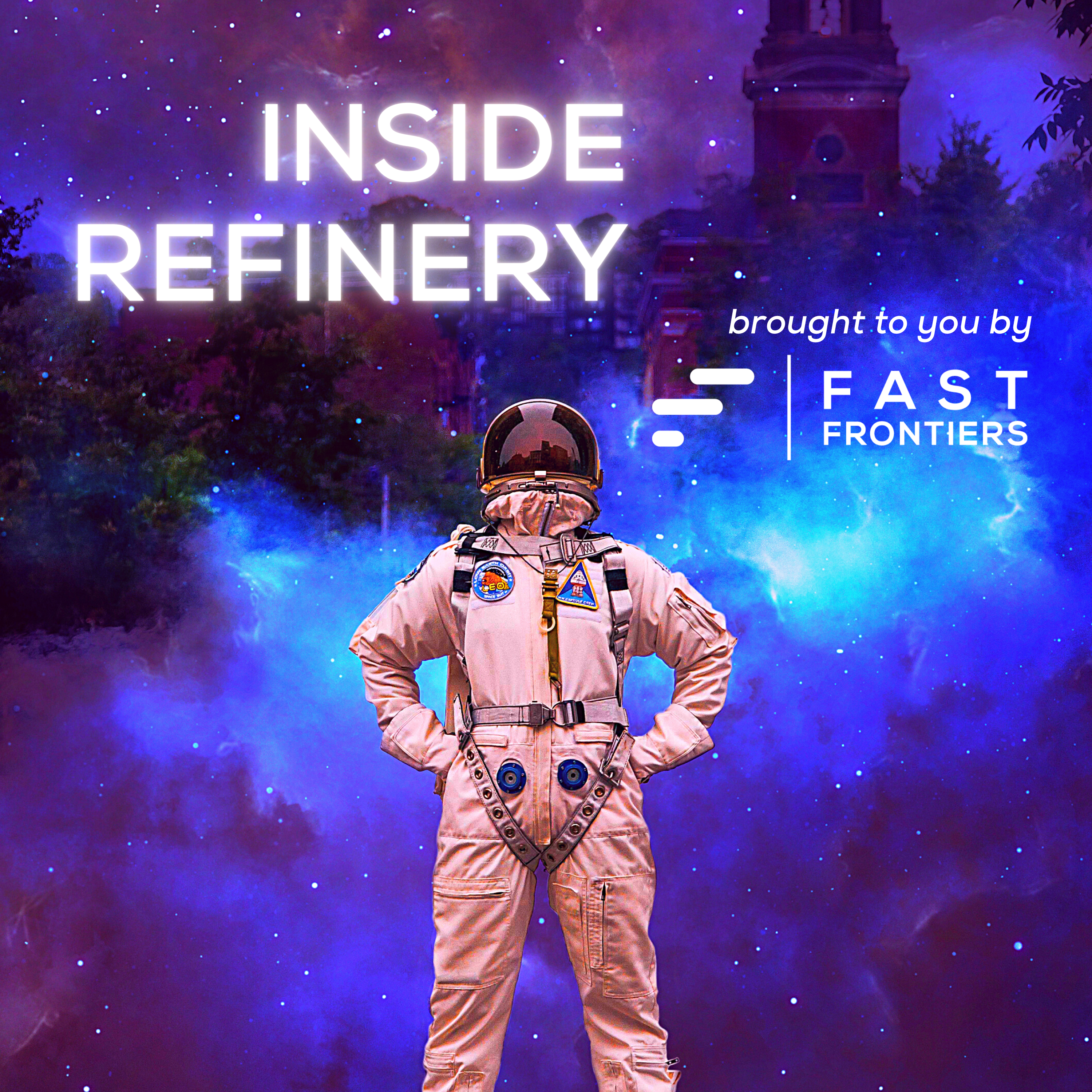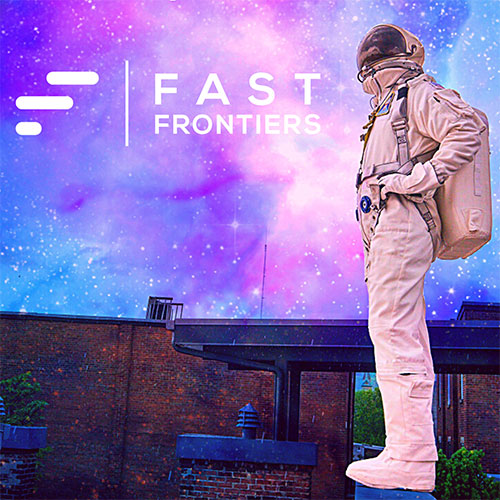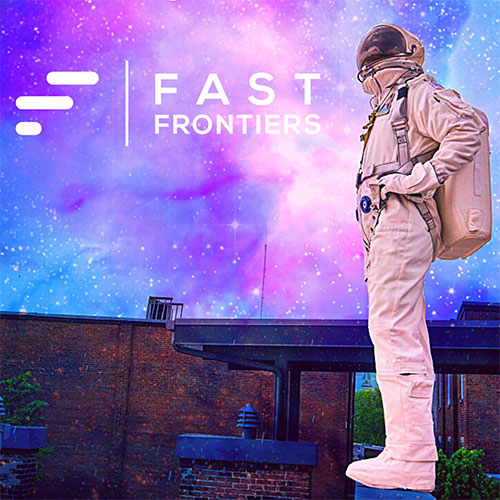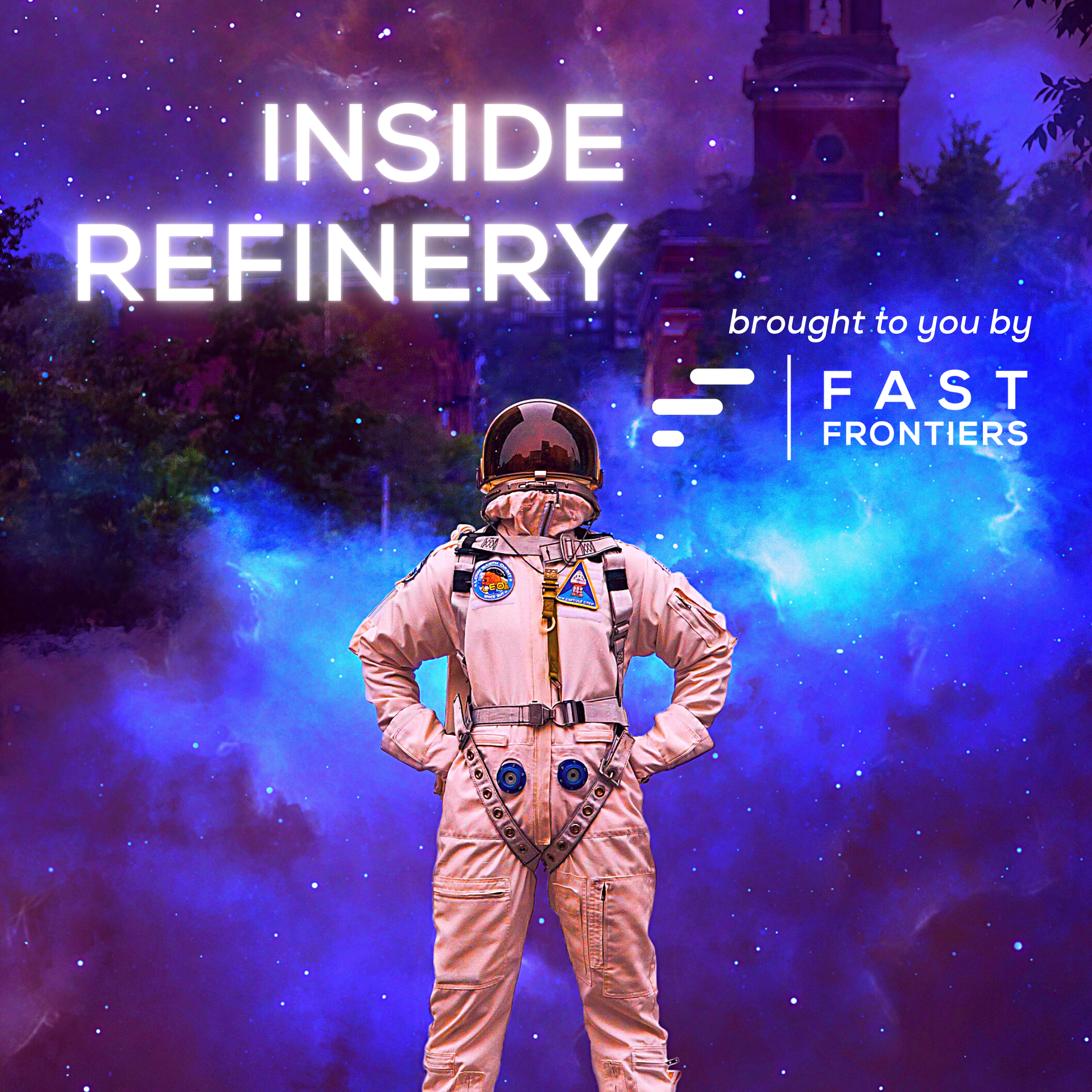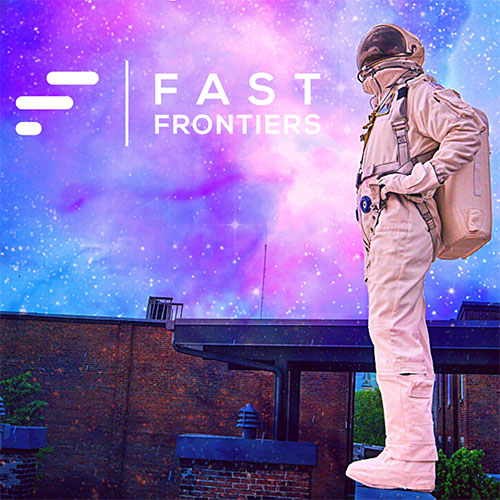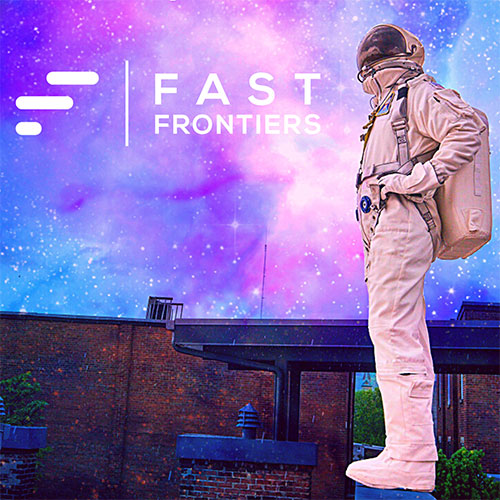S2 Ep 5. Baiju Shah: Cleveland Innovation Project
- 0.5
- 1
- 1.25
- 1.5
- 1.75
- 2
Tim Schigel: Welcome to Fast Frontiers. I am your host, Tim Schigel, managing partner of Refinery Ventures. In today's episode, we're bringing you my conversation with Baiju Shah, Senior Fellow for Innovation at the Cleveland Foundation. We're going to dive into what Baiju sees as the gaps in the Midwest and how he's working to combat these through his work with the Cleveland Innovation Project, which includes setting expectations and identifying opportunities to bring high growth and innovation to the region through three sectors of focus, next-generation healthcare, smart manufacturing, and water technologies. Baiju Shah serves as the Senior Fellow for Innovation at the Cleveland Foundation, where he focuses on catalyzing strategic initiatives for the region, including serving as the leader of the Cleveland Innovation Project. Baiju is also the managing director of Accelevate Ventures, an advisory firm focused on accelerating innovation platforms and impact initiatives, principally in the bioscience and healthcare sectors. In his previous work as CEO of BioMotiv and co-leader of The Harrington Project for Discovery & Development, Baiju has extensive experience in launching companies and innovation platforms, as well as economic development. Before BioMotiv, Baiju was president and CEO of BioEnterprise, a partnership with Case Western Reserve University, Cleveland Clinic, Metro Health, and University Hospitals. He started his business career as a consultant at McKinsey, after earning a law degree from Harvard and a bachelor's from Yale. Please enjoy my conversation with Baiju Shah. Baiju, so good to have you on Fast Frontiers. Welcome.
Baiju Shah: Thank You, Tim. Good to see you again.
Tim Schigel: Speaking of fast frontiers, you are on the leading edge of creating the next fast frontier in Cleveland, with the Cleveland Innovation Project, working with a group that I think is just fascinating, as I've gotten to know Ron Richard, the CEO of the Cleveland Foundation. Which many people don't know, even people probably in Cleveland don't realize, Cleveland Foundation was the first community foundation in the world. How many years ago was it now?
Baiju Shah: It was 1914. If we want to talk about innovations, very innovative concept when it was put together. It was the idea to put philanthropy into the hands of a community trust, so that generations could not only invest their dollars, but also direct the dollars to whatever the community's future priorities may be. We are indeed the first community foundation and one of the largest still, with about $2.7 billion in assets and about $150 million of annual giving.
Tim Schigel: Yeah. It's amazing. It's because of a foundation like that, that some of the long-term investments in the city happened. I grew up in Cleveland and went to Case Western. One that comes to mind, if I'm not incorrect, is the Cleveland Metroparks.
Baiju Shah: Yeah. Yeah, no. Cleveland Metroparks is a gift for generations upon generations. The tens of thousands of acres of protected land that's not distant, but actually in the neighborhoods all in and around Cleveland and its suburbs, is one of our spectacular natural resources.
Tim Schigel: Yeah. As a kid, I mean, it wasn't far from my house. I could go down there, take my bike. I could go fishing. I could go on the bike trail and be gone for days. I mean, just bike all over the place. As a kid, it was great.
Baiju Shah: It's absolutely a wonderful resource.
Tim Schigel: So your background, just to give the listeners some context, you've multi-dimensional background in the biotech industry, in the entrepreneur, in the venture industry. You have a law degree. I mean, you've done so many different things. What are a couple of the things that you'd like people to maybe know about you that they wouldn't already know, that aren't obvious?
Baiju Shah: Well, I think probably everyone that knows me knows that I'm a diehard Clevelander, Boomeranged back. Just like you, grew up here, riding my bikes through the Metroparks as well. Always felt that Cleveland was the type of city that I could come back to and participate in, in ways that not only helped me grow professionally but allowed me to be involved in a way civically, to give back to my hometown. That's probably pretty obvious, from my background. What's not obvious from my background, I think like many other entrepreneurs, I certainly have got ADD. I like to be involved in lots and lots of different things. The joy to see the diversity of innovation, diversity of ideas that are out there, different people, the stimulation that one gets from it. But I also am very, very focused on impact. I think that the more time one spends in the entrepreneurial world, the more that one recognizes the difference between ideas, which are easy... Even when they're incredibly creative ideas, they're still not more than a dime a dozen, but execution is everything. Execution is everything. That's true, whether we're talking about a startup or whether we're talking about building an ecosystem or helping to transform a region. So, I have an urgency and focus around execution, that maybe is not completely known to everyone that's out there. That the older I get, the less patient I get, as well, around things related to execution.
Tim Schigel: Amen to that. One of my first successful investments or fastest-growing company that I was associated with when I got into venture, was a company called Advertising.com. Scott and John Ferber, they went from zero to $135 million in revenue in less than five years or something like that. I remember the saying, but I saw it in practice, which is, they were like 5% strategy and 95% execution. I mean, they didn't go back and have to revisit strategy every day. They had a good, solid strategy. It wasn't like it was bad strategy, but they weren't revisiting it every week. They were executing against it and learning and executing. But that execution was just this drum beat, maniacal. Yeah.
Baiju Shah: Absolutely. You've been in it with your ventures. I've been it with my ventures. I mean, it is a different discipline and then to do it at the appropriate scale. You and I have talked about this often in the past. I think one of the challenges here in Cleveland and maybe more broadly in the Midwest, is people don't aspire to the scale that is relevant and required to remain competitive. They get satisfied and complacent with the successes of early milestones and then businesses start to plateau. We need more and more entrepreneurs that understand that scale is going to be relevant for success of their venture over time. It's not going to be sustained if you don't scale it in a globally competitive and relevant manner.
Tim Schigel: That is such a good point. I've been talking about how we need to... in the Midwest, how we need to flip the script. It's not enough to be successful locally. It's not enough to be the fastest kid on the high school team. You're in a global marketplace. But it's interesting because of this, whatever it is, Midwest attitude or whatever. As soon as an entrepreneur, young entrepreneur comes out with some kind of bold vision, people are almost like, "Yeah, yeah, keep that to yourself. Let's not get carried away." The expectations are different when realized versus the west... People don't go to the west coast because of money. They go there because the expectations are you're going to change the world.
Baiju Shah: Yeah. Yeah. I think that's exactly right. And then it carries over, obviously, to capital, in both not only how investors think, but more importantly, how entrepreneurs think. It's starving the business from being able to be successful, to being able to be sustainably successful if you're not seeking and raising the capital required for being competitive.
Tim Schigel: Which of your experiences formed that growth mindset?
Baiju Shah: Yeah. I've had the pleasure of learning from and watching many successful entrepreneurs, from my various vantages over my career. It's really watching individuals like a Ray Dalton. Ray is a six-time serial, successful entrepreneur here in Cleveland, all health IT services. Business after business after business, it's been execution, scale, execution, scale, execution, scale. It's learning from someone like him, learning from, unfortunately, a recently departed mentor of mine, Mal Mixon. Mal was the founder of Invacare. More importantly... Not more importantly. I should say, as importantly, Mal was an avid investor and entrepreneur, and mentor to so many ventures throughout Cleveland. Like you, I'm always looking to learn. I'm always listening. I'm watching. I'm seeing, what can I gain from seeing how others are doing things? I think that seeing the success patterns and the failure patterns, you start to recognize that importance of not only the execution discipline, but the scale discipline. How do you work and operate at the scale that's required to be relevant in your industry?
Tim Schigel: Which brings up questions like, not how do we double, how do we 10X, how do we 100X?
Baiju Shah: Yes.
Tim Schigel: How do we stretch?
Baiju Shah: Yes. Right. How do we think that way? How do we think that way from the outset? Instead of doing pilots, how do we immediately start to go for something larger, to push ourselves in having that aspiration and learning through that in terms of what it's really going to take?
Tim Schigel: Right. It's almost scary. I mean, I've learned the term... it's kind of obvious, but the term backcasting is basically the idea of saying, "Oh, what do we look like as a hundred million dollar company?" and then work backwards from that to figure out how you get there. Right?
Baiju Shah: Yep.
Tim Schigel: It sounds obvious, but most people don't do that. You got to wonder, why not? What was it about the vision and the opportunity with the Cleveland Innovation Project that made you say, "The time is now and the person is me"?
Baiju Shah: The time is now I can answer. The person is me, is probably not best for me to answer. I can tell you when I was attracted to it. But in Cleveland, we've had a history for 20 years with the Cleveland Foundation, but also many other organizations, of trying to catalyze a innovation ecosystem and trying to build our version of what every other region in the Midwest and really regionally, the country has been trying to build and build on your assets and create this set of high growth enterprises. We've had some successes, a number of very successful companies that have come out, but we haven't yet achieved our full potential. We recognized that as a community, we needed to be doing much, much more. That we had sort of started becoming, as I was saying earlier in this episode, a little bit complacent with the level of success we'd achieved. We watched nearby regions continue to accelerate past us. Regions such as Columbus and Pittsburgh, that are doing incredible things in the tech space broadly. That galvanized our broad civic community. By that, I mean not only organizations like the Cleveland Foundation and the public organizations, but also our corporate leaders and other concerned citizens to think about, what is it that we should be doing to have the same type of trajectory as a Columbus or a Pittsburgh? That is the backdrop to what led to the creation of the Cleveland Innovation Project. That predates my involvement in the project itself. It was the creation of the Cleveland Foundation, four other economic development organizations here in Cleveland, that all came together and said, "We need a common vision." We need a common vision to identify a couple of bold initiatives to really change Cleveland's trajectory in terms of growth, but also inclusive growth, inclusive prosperity. As that issue was front and center on our region's agenda over the last several years and of course, heightened because of the stark situations that have been brought to everyone's life in 2020, both in terms of the pandemic, as well as the protests against racial injustice.
Tim Schigel: When you got involved, how much of this was shaped and defined?
Baiju Shah: It was very beginning stages. I would say the convening had happened. My original involvement was to be invited to be a part of the steering committee that was of corporate and civic leaders, that was going to guide the Cleveland Innovation Project. The work of identifying those couple of bold initiatives was just beginning. This was kind of mid-2019. There were a number of sectors identified. We had contracted McKinsey & Company to be a part and parcel of that analytical phase. That's how I actually first got involved, Tim, is a steering committee member, guiding in particular healthcare, given my background in the healthcare industry. About six months in, when the analysis was starting to come together and sectors were starting to emerge, there was a recognition that we were going to have to transition from identifying opportunities to really developing the strategies and implementation plans. To do that, we needed to take ownership of that as a region and as a set of regional organizations. That's when I was asked to step in from the steering committee and actually take on the role of leading the Cleveland Innovation Project on behalf of the five partner organizations and the steering committee.
Tim Schigel: So, you became a student of the other regions and what they've done.
Baiju Shah: Yep.
Tim Schigel: Right? So, you learned some things. What can you share? What have you learned that you think some folks have done particularly well? What issues have you seen that just haven't worked?
Baiju Shah: Well, a couple of principles that came out of learning from other regions, these things may seem self-evident or obvious. One is focus on excellence. What can you be truly excellent at? You have to think about excellence on a national or global basis, depending on the industry that you're in. You have to be sober-eyed about your current state of play and what you need to be able to invest to attain excellence and sustain excellence. When you look at Pittsburgh nearby, immediately, excellence in robotics and AI come to mind. They have been investing in that for three decades now. It's not an overnight success. It's a three decade investment plan, that has paid off in terms of not only institutional excellence, but broader economic development, growth in fast companies, attraction of major flagship tech organizations above and above. So, focusing on excellence and being completely clear and candid with yourself and with the region, about what it's going to take to be excellent and where you're starting from. One learning. The second was scale. We talked earlier about scale in the context of an entrepreneur. Scale is relevant for a region as well. How do you ensure that as you're pursuing excellence, you're dreaming at a scale that becomes relevant as well? You can have excellence around one professor, one laboratory, one very, very narrow niche. That's not going to make a difference in terms of driving regional prosperity.
Tim Schigel: What's the KPI in 10 years?
Baiju Shah: It's a couple of things. On the input side, it's what are the resources that institutions, foundations, governments, corporates are putting forward into building excellence? Whether that's investment in our search infrastructure, investment in building the capital infrastructure that's going to support the development of ideas into businesses, physical infrastructure. All of those things are important in terms of the investment and then network infrastructure. Network here meaning, how do you connect the region globally? I always think about the different types of capital one's trying to bring in to the region. Part of that is social capital, in this day and age. How do we make sure we're investing in the networks to bring... whether it's capital ideas, people, into our region to be a part and parcel of our enterprise? Those are the types of things you measure on the input side. On the output side, it translates into the scale of investment you're able to attract to the businesses that you're fostering. The growth of those businesses is measured by either revenues or employment statistics, the growth of your research enterprises. How do they become larger and larger enterprises, that are doing broader work, that enables a pipeline of innovation that's going to be relevant? Those are the types of things that you measure, or that we would measure as part through innovation projects. Those are the things that we... We've seen that, in terms of resource and scale investment, again in nearby regions. Columbus has been amazing over the last decade. It's not just Drive Capital. Drive Capital is a big part of it, in terms of the companies that they've supported, but it's also Ohio State. It's also Nationwide Children's. It's also Rev1 Ventures. It's also all of the corporations around Columbus, embracing corporate innovation and investing in endeavors that broaden the ecosystem. It's about talent attraction into Columbus. You see the flows of population, not just from around the state, but around the country and the world coming in. Those are things that matter. That's driving Columbus in a different trajectory than we're on here in Cleveland. So, excellence of scale. The thing that we haven't seen anywhere, Tim, is anyone meaningfully moving the needle on inclusive prosperity in the innovation space. Inclusive prosperity can be measured in many different ways. It's a function of companies or investment funds or researchers that are from diverse backgrounds. Black, Latinx, other underrepresented minorities, female, all of those are underrepresented broadly in the tech sector. We haven't really seen efforts in regions, other than pilot endeavors. There's always pilot endeavors, but moving the needle in a region to see more representation in the tech sector hasn't happened yet, to our awareness. Nor have we seen inclusion from a socioeconomic perspective. Really thinking intentionally, but as we grow these sectors, how do we make sure that opportunities are being created to connect individuals from socioeconomically less-resourced communities into pipelines that allow them to participate in the growth of these sectors in a meaningful way? So, not just being a part of the service industry that exists around the tech industry, but really getting involved in exposure programs early on. Because I think exposure is critical to even give people the concept in their head, that I could work in a smart manufacturing firm or I could be a software coder
Tim Schigel: Right. Just to know those things exist.
Baiju Shah: To know it exists and putting intentionality and scale behind those resources, so that you actually create inclusive prosperity and pipelines for the broader community to benefit from the growth of our tech sector. I haven't seen that done. Again, I've seen great pilot programs around the country, but I haven't seen at a community-wide level, a meaningful, successful set of results yet. That's part and parcel of what we hope to be able to invent and contribute, as a part of our work through the Cleveland Innovation Project.
Tim Schigel: Back to output or the aspiration then, so 10 years from now, what does the Cleveland economic landscape look like if you're successful?
Baiju Shah: Yeah. I can answer that both qualitatively and I'll give you a sense of the quantitative school as well. Through the Cleveland Innovation Project, we've identified three sectors where we believe Cleveland has the opportunity to be preeminent. The three sectors are not just health innovation, but in particular, next generation healthcare. Cleveland is well-known as a medical mecca. Our hospitals are world-class, for the way they take care of patients inside of their facilities. As you know, the world of digitization is moving into healthcare in rapid form, especially because of what's happened in the last year with the pandemic. We want to be known for not only delivering that type of care excellence outside of the walls of our facilities, the way that we're known for care excellence inside facilities. We want to be pioneering the technologies and services that are required to enable that digital healthcare future, that next generation healthcare future. That's one sector that we look back and say, Cleveland's a mecca for that type of innovation. The second sector is around smart manufacturing. Building on our heritage as one of the largest and most diversified industrial economies in the country, but bringing digital into everything we're doing in the manufacturing environment. Not just in the operations of a factory, as we think about 3D manufacturing and digitizing manufacturing process, but upstream as we're dealing with suppliers, downstream as we're dealing with customers, really transforming the manufacturing world into the world that it's going to be because of digital technologies. We want to be the place where those technologies are pioneered, tested with our industrial companies and globally sold when they've been validated.
Tim Schigel: That's a great message for entrepreneurs, any entrepreneurs in that space. If they knew that Cleveland was the most welcoming environment, in terms of the traditional companies wanting to bring in that innovation, they'd be moving there in hoards.
Baiju Shah: Well, there's a recent announcement that came out, that we're quite excited about. EY, Ernst & Young has announced that their global center for advanced manufacturing innovation will be in Cleveland, with a firm called Nottingham Spirk, that you know well.
Tim Schigel: Oh, wow.
Baiju Shah: Nottingham Spirk is an amazing industrial and consumer design organization. A number of products exist in my household and your household, that were created from Spirk. Those two firms have partnered to create a global hub for advanced manufacturing innovation. That's where EY is going to be bringing a lot of its clients to learn about digital technologies, both from a design perspective, all the way through a production perspective. But it also ties into this broader smart manufacturing initiative, because it becomes the gateway for entrepreneurs to showcase what they can do to transform manufacturing environments to EY's clients.
Tim Schigel: I know the folks at Nottingham Spirk. We'll put a little commercial in for them, for the listeners to go check them out. Maybe most famously known for the Little Tikes designed car, but as you mentioned, so many other things. Yeah. That's another one of these mega trends, which is the design orientation of everything. I think that is so smart because they are world-class and it starts there. It starts with design. So, that's terrific.
Baiju Shah: Yeah. That's the second sector. So next generation health, smart manufacturing, and the third is around water technologies. This was a sector I knew nothing about. We think of water in the Midwest because we think of the Great Lakes. We think we live near and when we do, we're privileged to live near the world's greatest collection of surface water, freshwater. But water technologies is all about the management of water, the treatment of water, the monitoring of water quality, the movement of water. The technologies that are required for all of that in a water-stressed world, because most of the world does not have the benefit of living on the Great Lakes, the demand for those technologies and services is growing exponentially. Here in Cleveland, we've got because of our heritage, over a hundred companies that today participate in the water tech space. We think we can become one of those geographies in the world, where water innovation is vibrant because of that heritage, because of our interest in water technologies, and because of the market that we're serving. So, we're putting a big emphasis on growing that sector as well. And again, the mechanism here is using testbeds. We are creating testbeds for entrepreneurs who have water technologies, to work in close proximity with whether it's utilities, whether it's with consumer users, whether it's industrial users, with neighborhood and residential. All of those types of settings, an environment where they can quickly demonstrate whether their technology proves out, it validates the value proposition and then the support around those companies to scale their enterprises. Those are the three sectors that 10 years from now, if you are to come back and we've been successful with the Cleveland Innovation Project, you should see a vibrant innovation environment, with a focus on three sectors where Cleveland has an advantage today and has the opportunity to really develop excellence in scale and reputation. Now, that translates into, obviously all sorts of metrics that we've established for our scorecard. We're big on numbers. We're big on accountability. So, we've got 2030 objectives that are specific to job growth, to diversity of employment in the tech sector, to include underrepresented minorities and women, research growth, capital growth, households that are connected to broadband. But then we've broken it down to 2021 objectives that we'll be announcing shortly as well. Because again, back to visioning, visioning is great. You want to know where you want to be in 2030. But to hold ourselves not only accountable, but to force focus, we are going to be adopting 2021 objectives at the Cleveland Innovation Project, to ensure that the community is aligning resources and problem solving when we're not on trajectory to figure out what's wrong with either our strategy, our inputs, our outputs, our partners, so on and so forth in the way that one would approach managing any other type of enterprise.
Tim Schigel: 2021 will really be, is this right, at the first year of execution.
Baiju Shah: Yep.
Tim Schigel: Yeah.
Baiju Shah: Yeah. From now, we've said it's back to your comment about 5% strategy, 95% execution. We've basically said planning's behind us. It's obviously, always constantly being refined, but it's about impact. It's about implementation. It's about outcomes. That's got to be our mindset to be successful at achieving the long-term-vision so that we stop fiddling with the paper, and we start actually putting stuff into the world and seeing what we learn when we actually put it into practice.
Tim Schigel: Well, you made good progress because as anybody knows, who's been involved in a community related effort, there are a lot of stakeholders, a lot of people with opinions and ideas. They're all valid to one degree or another, but there's only so many things you can do. So, you've tightened it up pretty well.
Baiju Shah: We're tightening and we're constantly, I think, in a civic process and probably not too dissimilar, but certainly harder than, I think, in corporate press. It's a constant herding that's required. And re-evaluation at appropriate times, to make sure that you're not missing something that emerges as a new opportunity.
Tim Schigel: It is a different skill set. Isn't it? I noticed that with Cintrifuse. It takes that vision and that communication and leadership of people like yourself and Ron and the other key stakeholders there. So, congrats on getting this far. We'll look forward to seeing how you do developing this fast frontier in Cleveland.
Baiju Shah: Thank you.
Tim Schigel: Thank you, Baiju, for sharing your time with us.
Baiju Shah: Thanks for having me here, Tim.
Tim Schigel: Thanks for listening to Fast Frontiers. If you like our show and want to know more, check out our website, FastFrontiers.com. If you enjoyed this episode, please share with others and give us a rating and review on your favorite podcasting platform. Join us next week, when we bring you my conversation with Michelle McBane, managing director at StandUp Ventures.
DESCRIPTION
Today we're bringing you my conversation with Baiju Shah, Senior Fellow for Innovation at the Cleveland Foundation, where he focuses on catalyzing strategic initiatives for the region, including serving as the leader of the Cleveland Innovation Project. We're going to dive into what Baiju sees as the gaps in the Midwest and how he's working to combat these through his work with the Cleveland Innovation Project, which includes setting expectations and identifying opportunities to bring high growth and innovation to the region through three sectors of focus, next-generation healthcare, smart manufacturing, and water technologies.
Please click on any related resources below for more information about what we discuss in this episode.
Today's Host

Tim Schigel
Today's Guests


